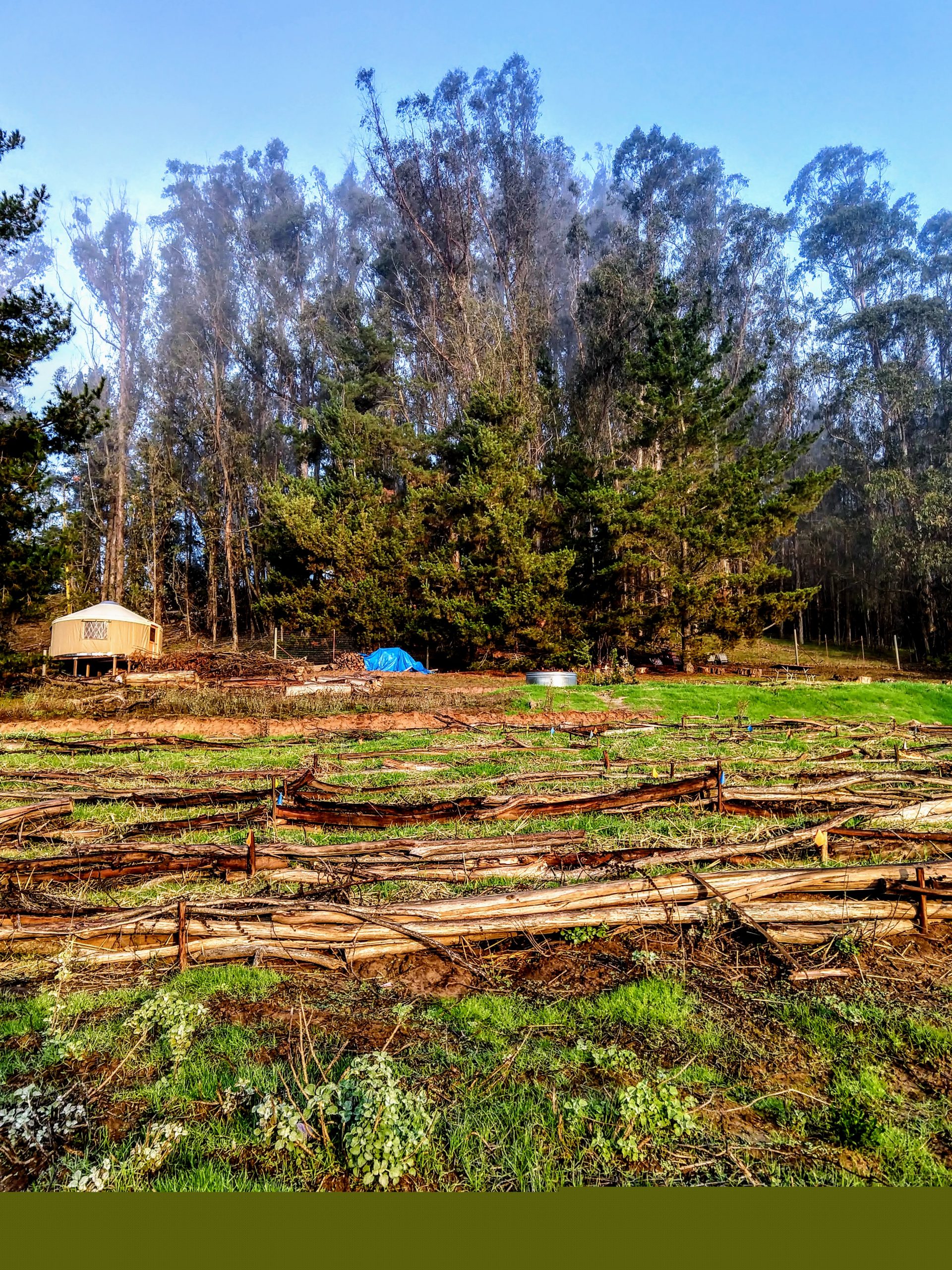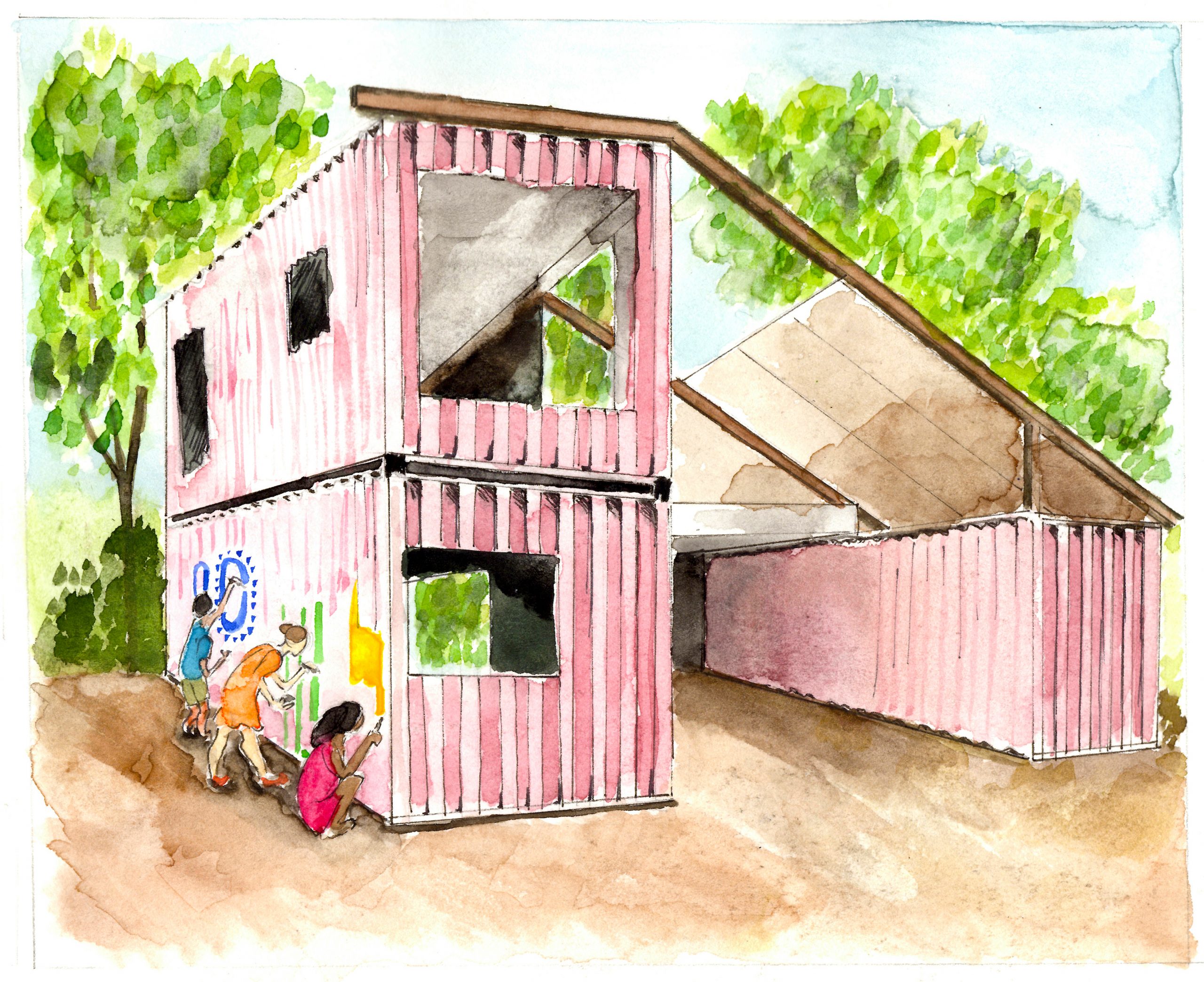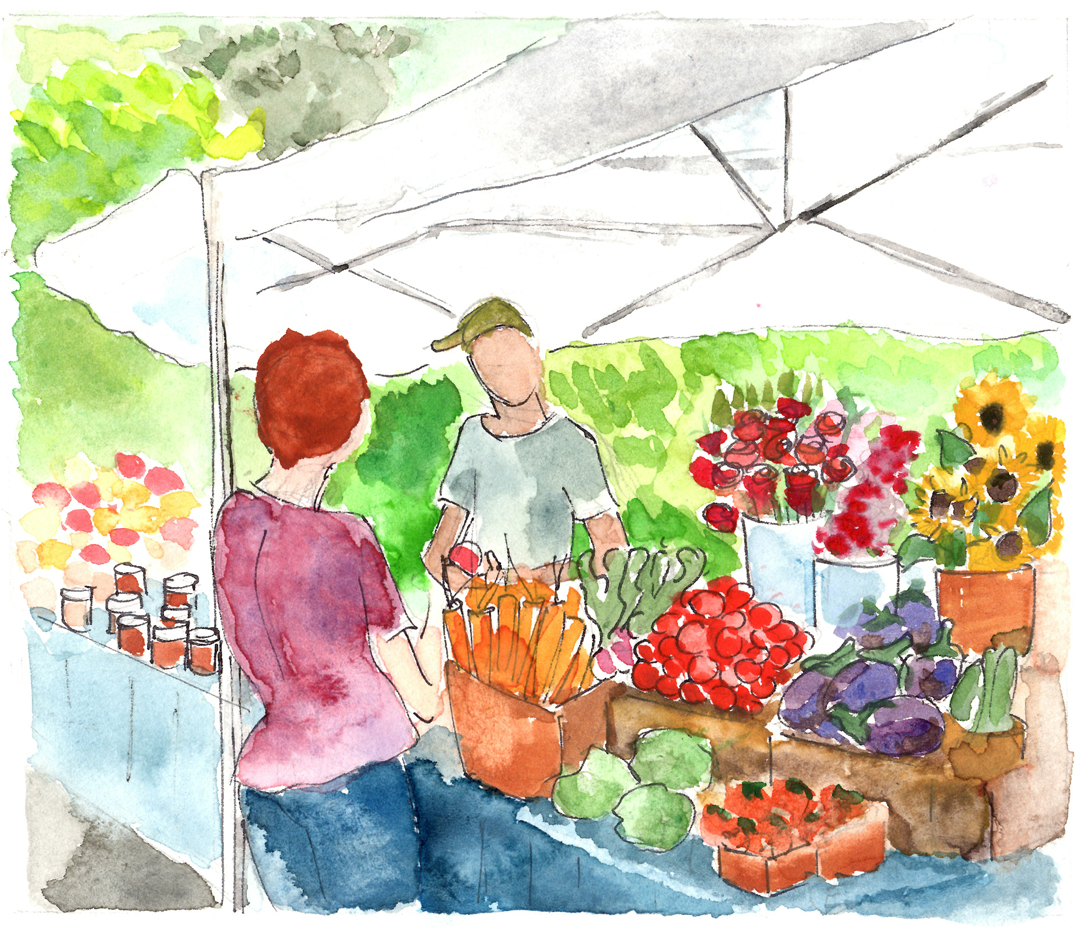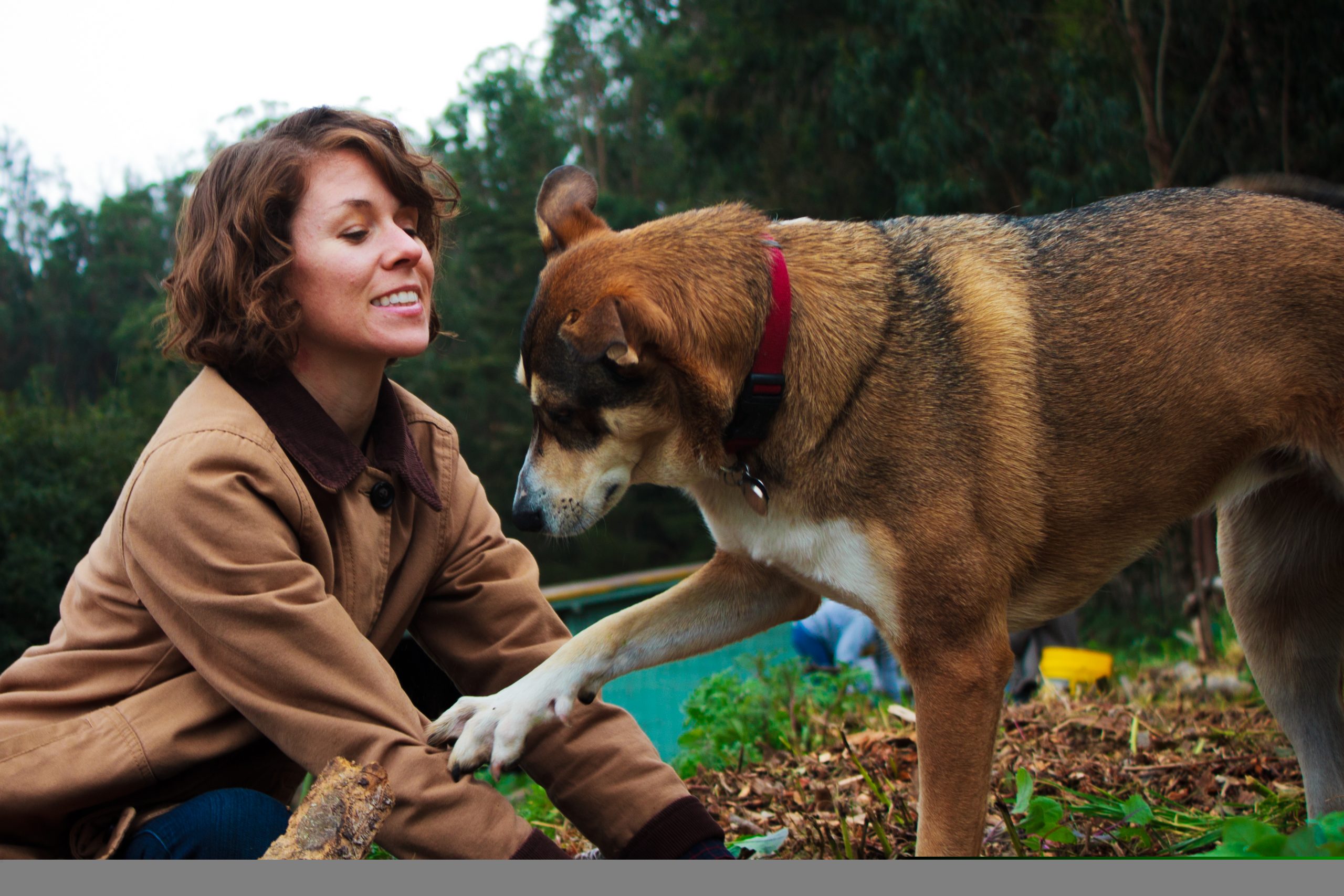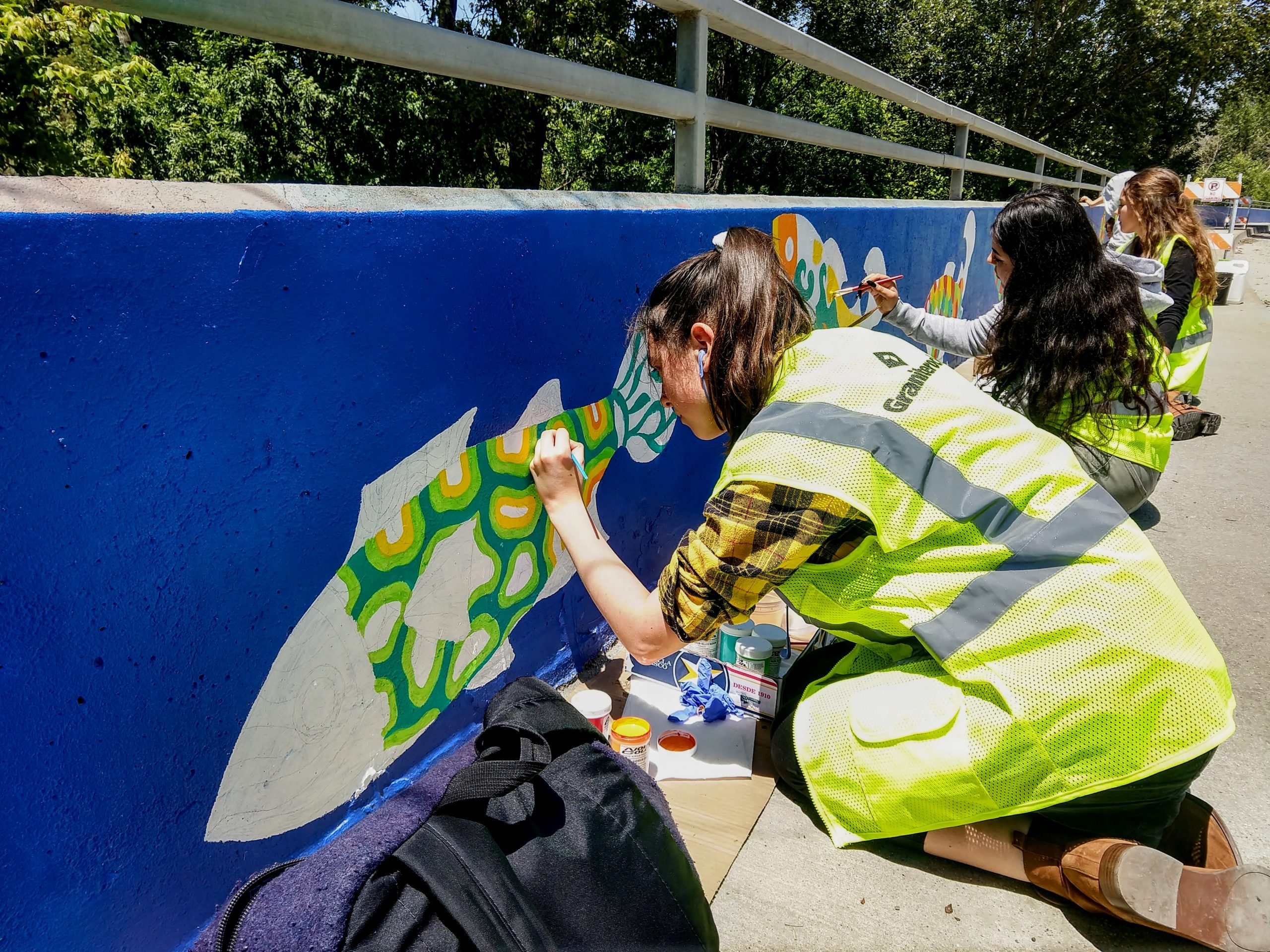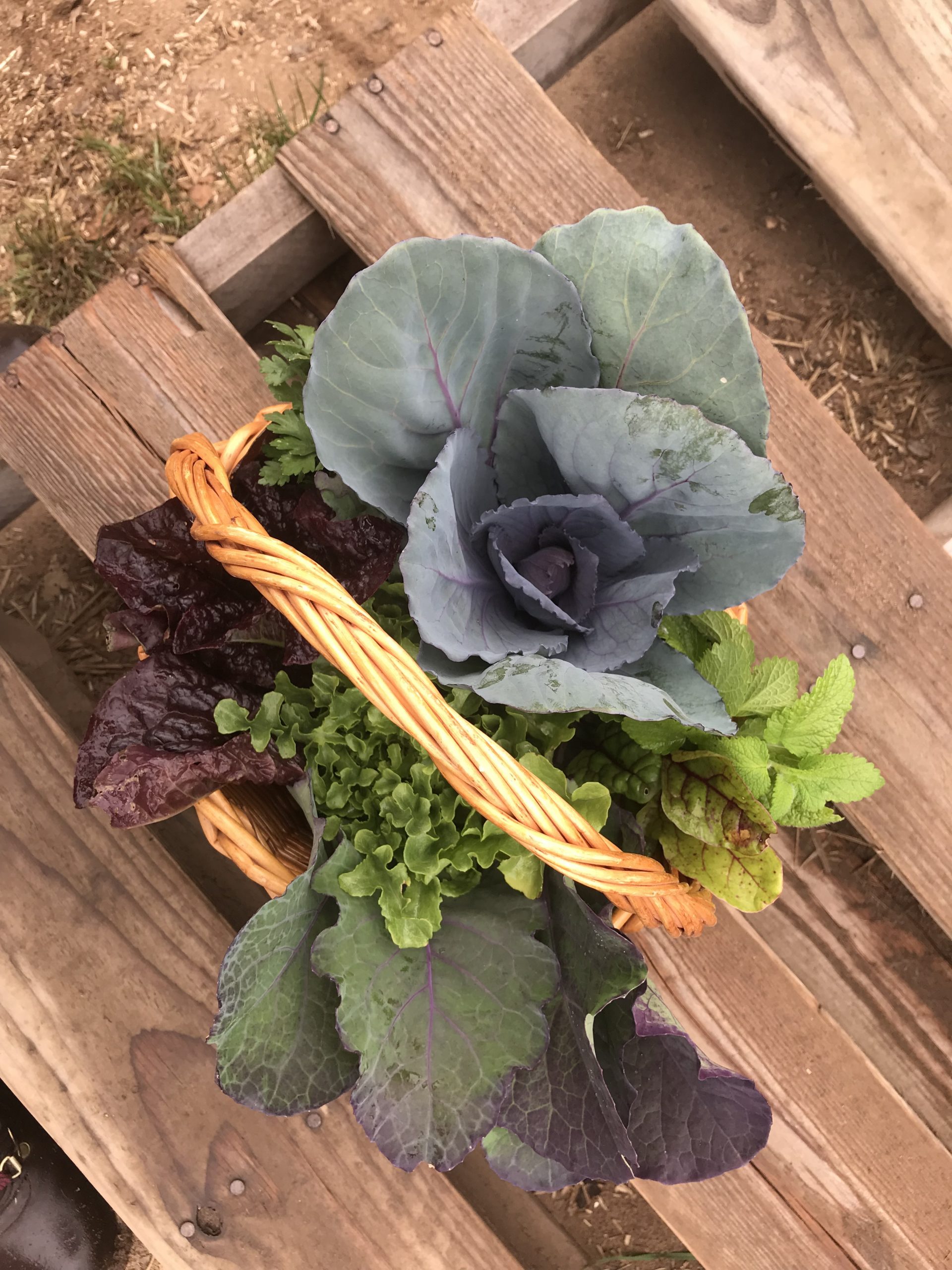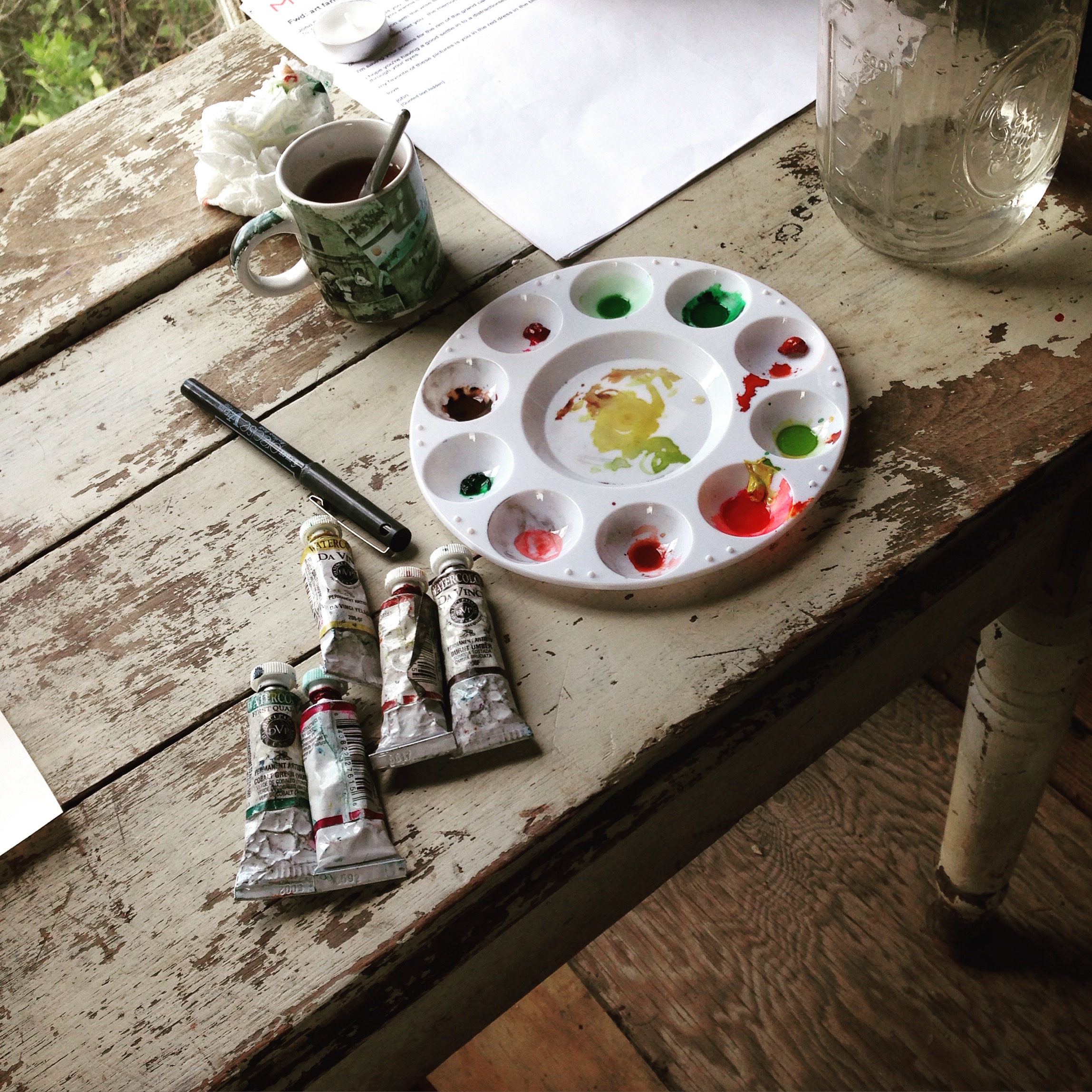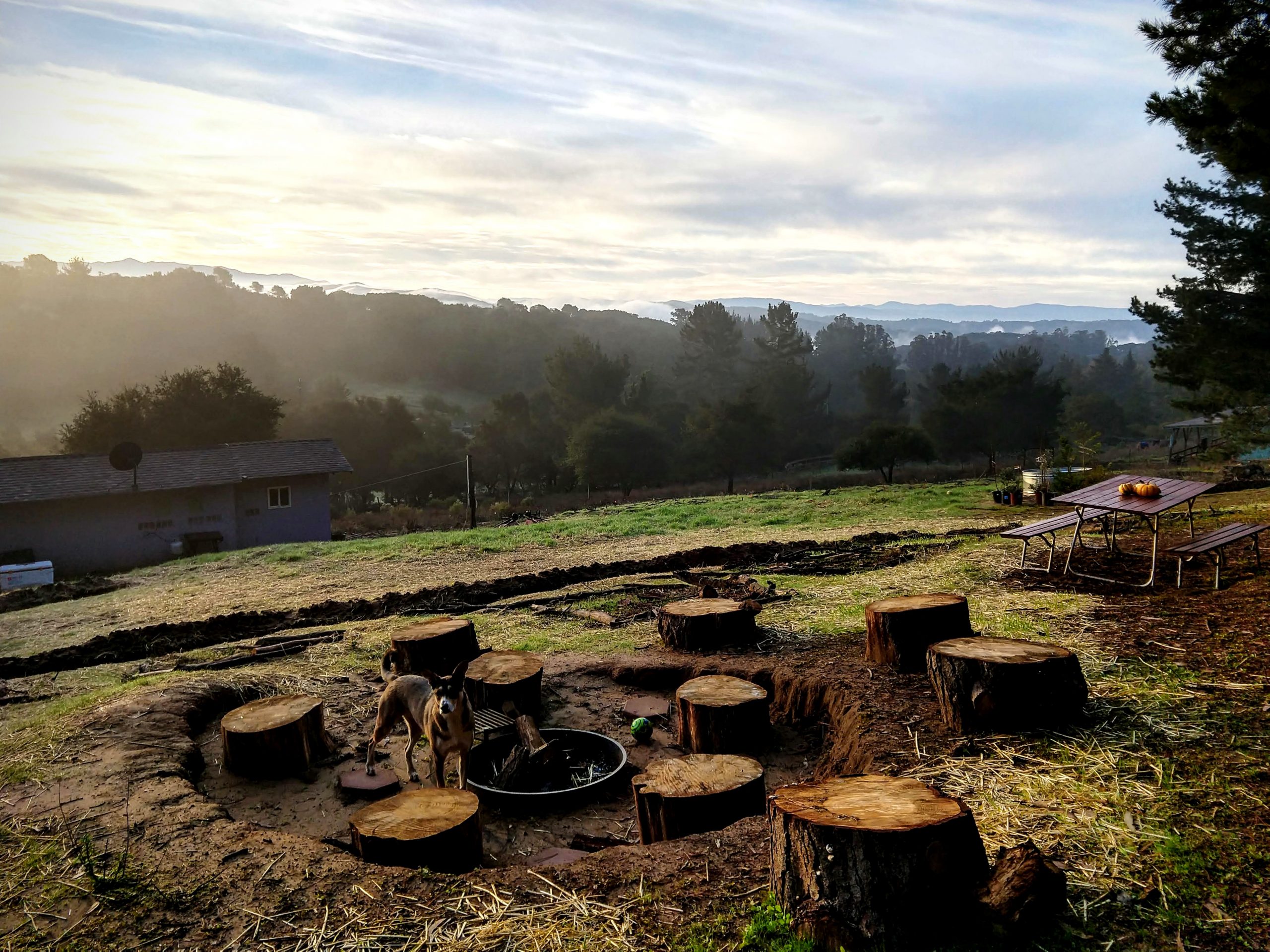An Argument for Artfarms
A Terra Cultura Manifesto
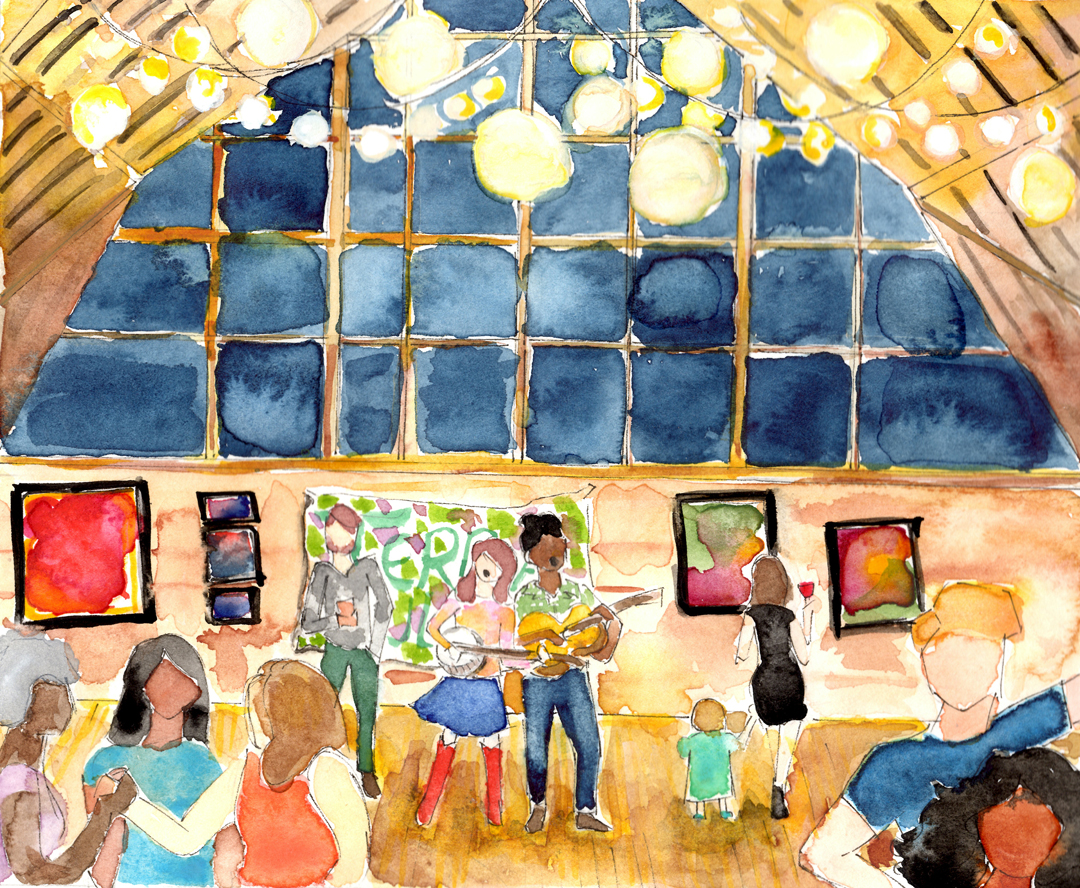
Introducing Terra Cultura
Terra Cultura exists on 5.65 acres that is part of the unceded territory of the Mutsun-speaking Motssum Tribe, who stewarded this land for thousands of years before the arrival of the Spanish in the late 1700s. The descendants of indigenous people taken to missions Santa Cruz and San Juan Bautista during Spanish colonization are still very active today in the region. The Amah Mutsun Tribal Band is working hard to restore traditional stewardship practices on these lands and heal from the trauma of the past.
Before this land came under the stewardship of Terra Cultura, livestock had been allowed to over-graze here, eating all the plants whose roots held the soil in place. When it rained, erosion carried away all the nutrient-rich topsoil, leaving behind only sand with near 0% organic matter. We have been working hard to regenerate a thriving ecosystem here since 2018, starting with building up the soil. After only a few years, the soil contains a much healthier level of organic matter, and a thriving ecosystem of plant and animal life is returning to the land.
The mission of Terra Cultura is to strengthen community resilience through education and collaboration in agroecology, sustainable living, and the arts.
We facilitate hands-on learning and cooperative projects that strengthen our food systems, environment, and communities. Our projects and programs explore models of community collaboration and environmental ethics that break down systems of oppression and exploitation to aid in the creation of a more just, equitable, viable, and sustainable future. We do this through projects-based educational programs both in the community and on-site, with a focus on community impact and responding to stated community needs. Together, we are nourishing a culture of environmental stewardship and honing the tools to build a more resilient future.
Since our establishment in January 2017, we have partnered with local communities and the land to establish the infrastructure and facilities of our eco-arts farm, the foundation for our educational programming. We now serve over 1500 community members each year through workshops, collaborative projects, and events, both on-site and in the community.
An average of 70 eco-education visitors come to the farmsite each month to learn firsthand about our ecological farming and gardening methods, and sustainable living practices. Visitors engage with our quarter acre of no-till vegetable row crops, pollinator garden, herb garden, all-access raised garden beds, food forest, classroom yurt, and outdoor classroom. Visitors learn about our water and power efficient systems, and how to implement them in their own homes.
In addition to onsite workshops and events, we bring our educational programs to community centers, schools, and events. We teach our Eco-Arts Program in all 3rd, 4th and 5th grade classrooms in the Aromas-San Juan School District, providing 250 students a year with dynamic arts education. We also facilitate collaborative eco-arts projects to enhance and strengthen our communities.
In just a few years, we’ve built strong bridges with local communities, and have become one of the first nonprofits in the county to be California Green Business Certified. Together with collaborators like you, we’re working hard every day to build a more resilient and just future.
A Vision For Now
Terra Cultura is part of a movement to create the future we would like to see, here and now.
Terra Cultura is an eco-arts farm—a gathering space for creators, cultivators, and collaborators, where land stewardship and culture combine and flourish. Gathering places like Terra Cultura serve an increasingly important role in re-imagining how humans interact with each other and with our natural world. We aim to strengthen community resilience through shared experiences that bridge ecological care and cultural participation. It takes a resilient community to advocate for a more socially, racially, economically, and environmentally just future. At Terra Cultura we hone the tools of creative community engagement through education, collaboration, and interdisciplinary art. We integrate eco-farming with eco-arts to inspire a more holistic engagement with our social and natural environments, and to nurture emerging ecologically-minded culture makers.
We envision a reality in which the ecological, social, and economic aspects of our society are integrated and functioning in healthy, reciprocal, synergistic relationships. At Terra Cultura we explore those relationships centering resilience, equity, holistic balance, and viability.
Footnote:
Ecology can be translated as the wisdom of the dwelling place — eco from the Greek oikos, meaning household, and logos from the Greek legein, meaning to gather, as in gathering wisdom or know-how. Economy comes from the Greek oikonomia meaning household management or stewardship, traditionally associated with thrift — living within one’s means.
Essential to these ideas of home-wisdom (ecology) and house-management (economy) is the social aspect of the dwelling place, the community that makes up the household. The concept of the oikos encapsulates a broad notion of household, extending to all people on the land beyond a nuclear family, as well as animals, plants, weather, the terrain and the history of the place.
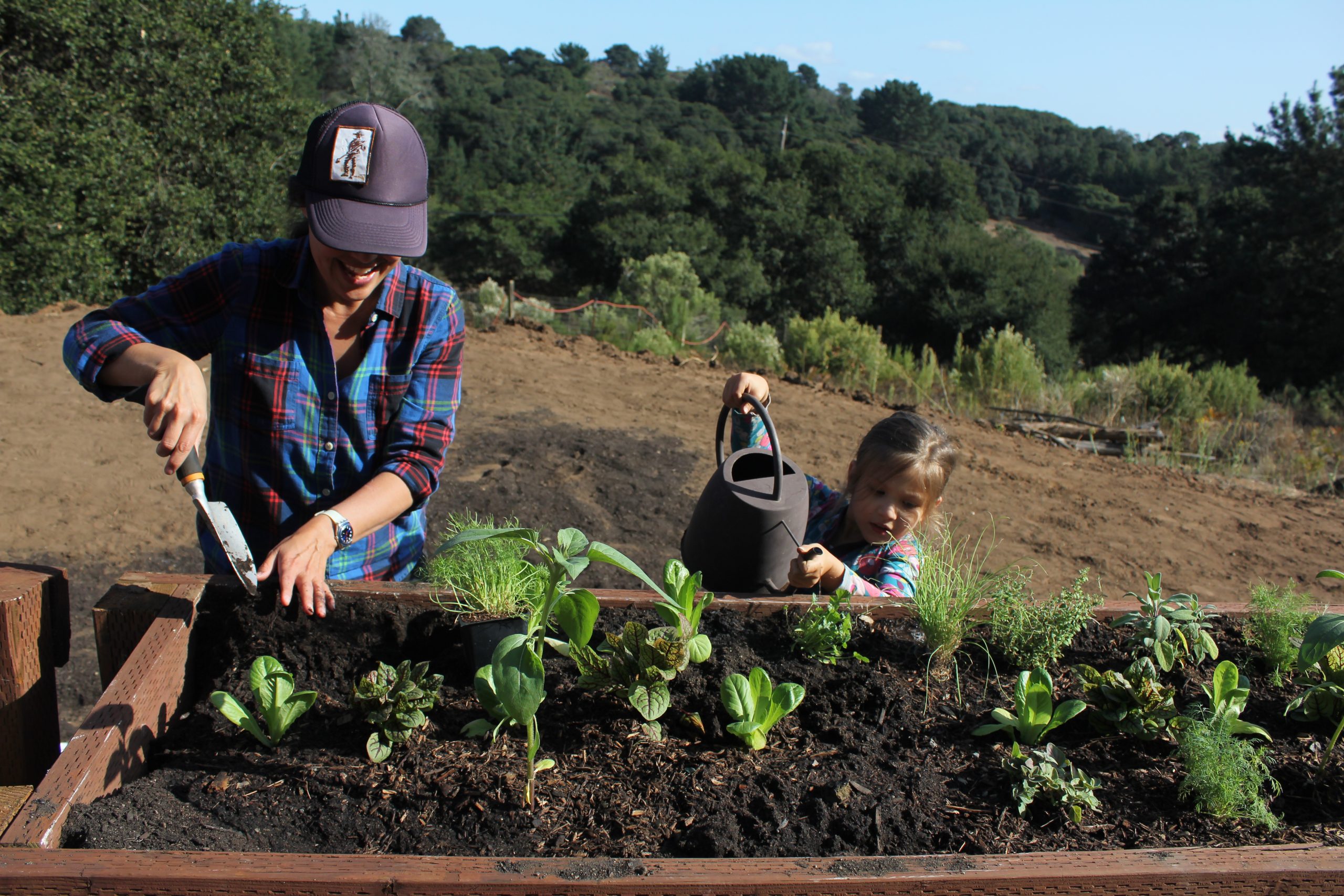
“And if we do act, in however small a way, we don’t have to wait for some grand utopian future. The future is an infinite succession of presents, and to live now as we think human beings should live, in defiance of all that is bad around us, is itself a marvelous victory.”
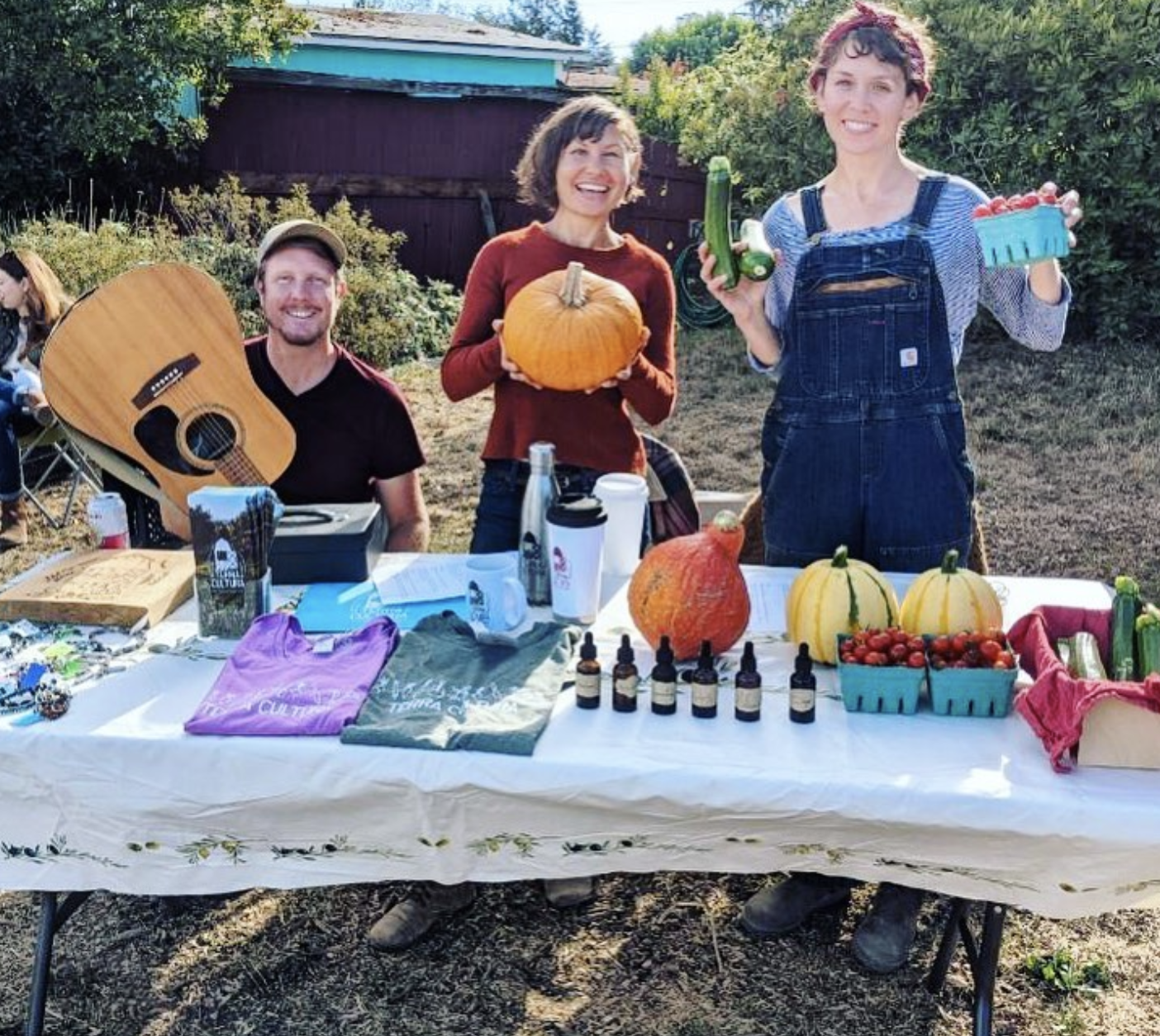
“A key driver will be the unsustainability of current patterns of wealth creation and distribution. Today’s economy is highly destructive of natural and social capital.”
A Shifting Economic Perspective
At Terra Cultura we acknowledge our essential interdependence and commit to thinking and acting collectively through emphasizing collaboration instead of competition, nurture and care instead of exploitation, and equity and liberation instead of oppression.
A shift in perspective to weigh natural and social health above profit is becoming necessary. Environmentally, we know that a preoccupation with profit has come at the cost of climate change and the rapid depletion of biodiversity, topsoil, clean air, and water. Industrial agriculture has been detrimental to communities all over the globe. Climate scientists suggest several strategies for reversing global warming in addition to eliminating greenhouse gas emissions, including, practicing regenerative agriculture, restoring ecosystems, encouraging plant-based diets, switching to renewable energy, and improving energy efficiency. Terra Cultura is a living classroom and laboratory for promoting and improving techniques and technologies to curb climate change, and to build a thriving community around these practices.
Terra Cultura has resilience and ecological responsibility is at the heart of our mission. We receive funding from the CDFA Healthy Soils Program for “implementation of conservation management that improve soil health, sequester carbon and reduce greenhouse gas emissions.” We utilize cover crops, hedgerows, mulch, compost, and silvopasture to aid in soil fertility, water retention, erosion control, weed and pest control, disease management, biodiversity, and to attract beneficial birds, reptiles, mammals, and insects. We practice no-till agriculture to nurture soil structure and organic matter, increasing carbon sequestration and decreasing consumption of fossil fuels. A Xerces Society grant allowed us to plant 1600 pollinator plugs to restore monarch habitat. Our current water conservation efforts include rainwater harvesting, greywater systems, and composting toilets, and through a grant from the CDFA State Water Efficiency and Enhancement Program (SWEEP) we were able to install a drip irrigation system powered by a solar grid.
A Crisis of Community
The environmental crisis is also tied up with crises of community and character. Exploitation of labor for profit often leads to diminished quality and the loss of meaningful involvement in one’s work; industrial agriculture has been detrimental to farming communities all over the globe. The mass market relies on mass marketing that thrives off disintegrating communities to create alienated and dissatisfied individualistic consumers.
Self-interested behavior is rewarded above care for the commons resulting in the destruction of the resources we rely on. We seem to have forgotten that we are only as healthy as the social and environmental processes that support us.
Colonization, industrialization, urbanization, globalization, and migration have led to increased disconnection from inherited place-based knowledge and estrangement from the natural world.When we cease to properly care for the interdependent relations between community and environment, we see a decline in health, a loss of collective knowledge, and the mutual benefits of the commons. When the economy is wrenched from place it is easy to lose sight of the carrying capacity, the maximum load a particular environment can sustain before degradation occurs. Through reshaping our views towards broad knowledge of relational systems, and towards cooperation above competition, we might reclaim resilient, empowered, place-based communities.
At Terra Cultura we prioritize decolonizing ourselves, our organization, and our community, and work to not reproduce harmful dominant power structures. Terra Cultura is committed to a horizontal structure and non-hierarchy as much as possible. We value process over program, and seek to create a brave space where people can speak their truth and achieve self-actualization and empowerment.
As we emerge from the social isolation of the pandemic and all the injustices and inequalities it brought to light, Terra Cultura offers a space for the community to gather, educate, activate, and inspire one another around the issues that matter locally. At Terra Cultura we work to cultivate a more unified community engaged and equipped to advocate for a more socially, economically, and environmentally just future. Engagement in our creative/ecological projects will help to hone our collective tools of community engagement, cultivate a supportive environment for courageous creativity, and nurture emerging ecologically-minded culture makers.
We believe that the culture we create through our creative pursuits has the power to shape the story of our futures.
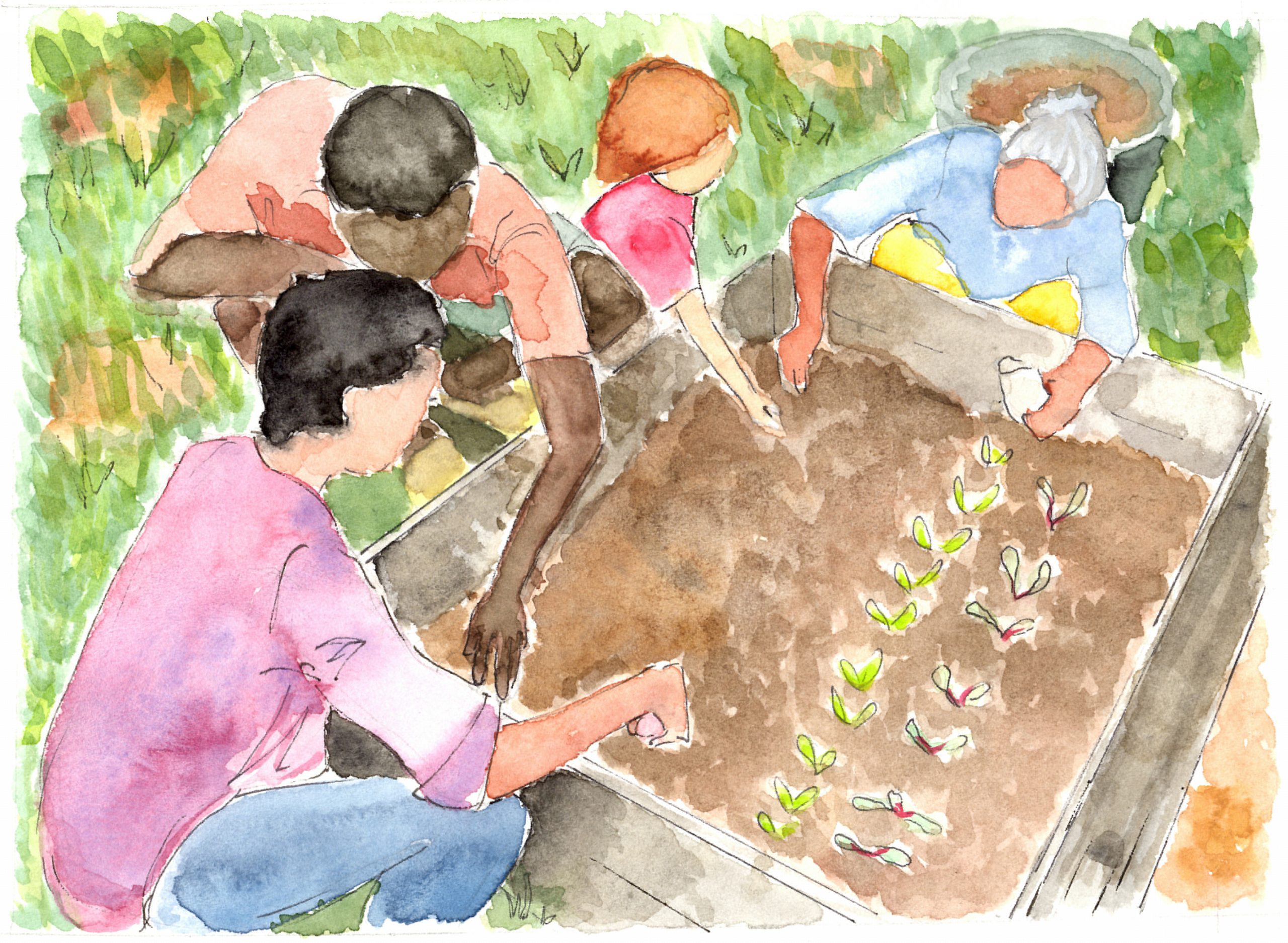
“A healthy culture is a communal order of memory, insight, value, work, conviviality, reverence, aspiration. It reveals the human necessities and the human limits. It clarifies our inescapable bonds to the earth and to each other. It assures that the necessary restraints are observed, that the necessary work is done, and that it is done well. ”

“Ally [yourself] not with the ever-expanding human monoculture, nor with the abstract vision of a global economy, but with the far more sustainable prospect of a regionally diverse and interdependent web of largely self-sufficient communities—a multiplicity of technologically sophisticated, vernacular cultures tuned to the structure and pulse of particular places.”
Local Projects, Global Collaboration
While large-scale change is necessary, it must primarily occur on a personal and local level, then gradually become widespread. The success of a project, be it economic, ecological, agricultural, creative, or social, may be weighed by the extent to which it engages with the nuanced needs and distinct traits of the proximate community.
Terra Cultura seeks to be among the many working models for exploring these structures for community and cooperative commerce.
We are aware that a wide network of similar movements already exists, and are emerging all over the world, and we enthusiastically encourage such proliferation. Care of the commons, collaboration, and reciprocity are inherent values we share with most like-minded organizations, fostering an open culture of knowledge, resource, and skill sharing. In our projects, we seek balance between catering to location-specific needs while collaborating beyond geographic boundaries. An awareness of these networks (both physical and digital) hones a keen response-ability: the ability to respond and adapt to the ever-shifting demands of neighborhood webs in the form of local markets, ecosystems, and communities, while engaging in active exchange with the global web.
Locally we are collaborating with community members to increase opportunities for direct-to-consumer marketing including new farmer’s markets, CSA, U-Pick, and farmstand options. We are working to increasingly elevate voices representative of local communities to positions of leadership within our organization, and to guide the farm to better meet the needs of its region, especially seeking to amplify BIPOC voices.
Active community collaborations include Arts Council for San Benito County, San Benito Community Foundation, Aromas-San Juan Unified School District, San Benito County Office of Education, Aromas Grange, Neighbors Helping Neighbors, Aromas Day planning committee, Aromas Harvest Fair planning committee, San Benito Community Action Board, National Young Farmers Coalition, LULAC, Aromas Hills Artisans, Aromas Performer’s Circle, and a local Mutual Aid Chapter.
Over the next 5 years we will implement infrastructure improvement projects that will allow us to expand our operations, increase our growing capacity, and make our educational programming accessible to broader audiences. We plan to increase our on-site holding capacity for educational programming and community involvement.
Agriculture and Culture
Terra Cultura takes into account many theories and methods for farming, utilizing various and changing techniques according to what best suits our specific terrain and community. All of our approaches follow holistic principles of land management, in line with agroecology.
Miguel Altieri describes the differences between industrial agriculture and agroecology: “Industrial agriculture which is corporate controlled, and promotes agrochemically-based, monocultural, export-oriented systems are negatively impacting public health, ecosystem integrity, food quality and nourishment, traditional rural livelihoods, and indigenous and local cultures, while accelerating indebtedness among millions of farmers, and their separation from lands that have historically fed communities and families.”
Industrial farming purports that monoculture, chemical fertilizers and pesticides produce higher yields while Altieri claims, “pests or nutrients only become limiting if conditions in the agroecosystem are not in equilibrium.” Agroecology and other methods of regenerative land management such as permaculture, biodynamics, holistic land management, and natural farming, strive to mimic the inherent checks and balances systems of a more integrated, diverse ecosystem. This functions to conserve biodiversity and water, enhance soil, and improve biological pest control. Rather than relying on monoculture and chemicals, “agroecological principles emphasize diversity, synergy, recycling and integration; and social processes that value community involvement and empowerment.”
When the complex systems and processes are acknowledged and maintained in equilibrium, Altieri claims that high yield and stability can be achieved. At Terra Cultura we seek this equilibrium in our gardens, and also in the balance between commerce, community, and creativity.
We acknowledge with gratitude the wisdom that comes to us from indigenous cultures that too often goes uncredited in ecological agriculture circles. We at Terra Cultura wish to amplify the voices of Indiegnous teachers around reciprocity and responsibility in relationships between people and the land, and support Idigenous communities, the Land Back movement, and rematriation however we can.
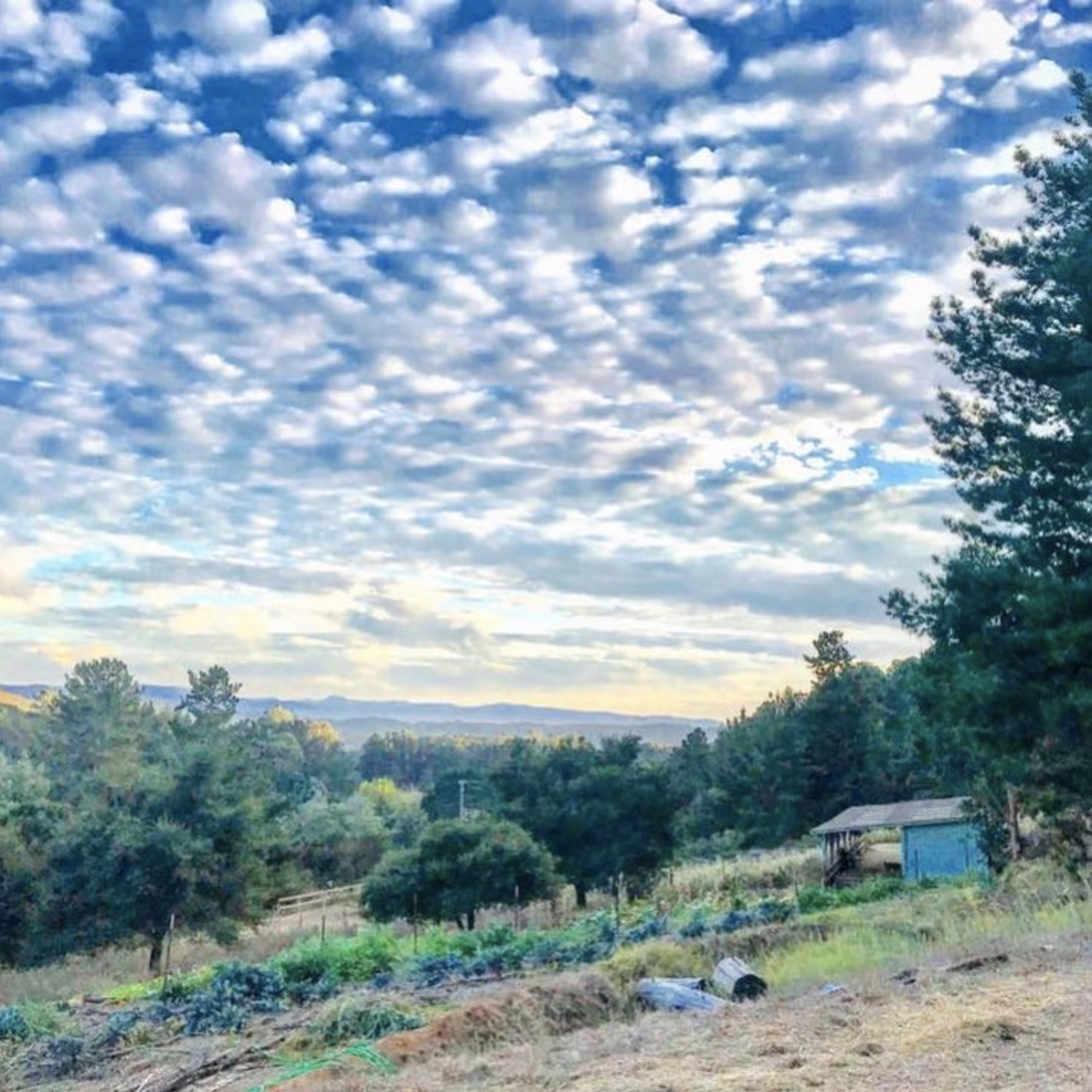
“Social capital formation is as important as the regenerative technologies involved, because what is key to local livelihoods is the capability of local communities to innovate, evaluate, and adapt as they involve themselves in a development process based on local knowledge and organization.”
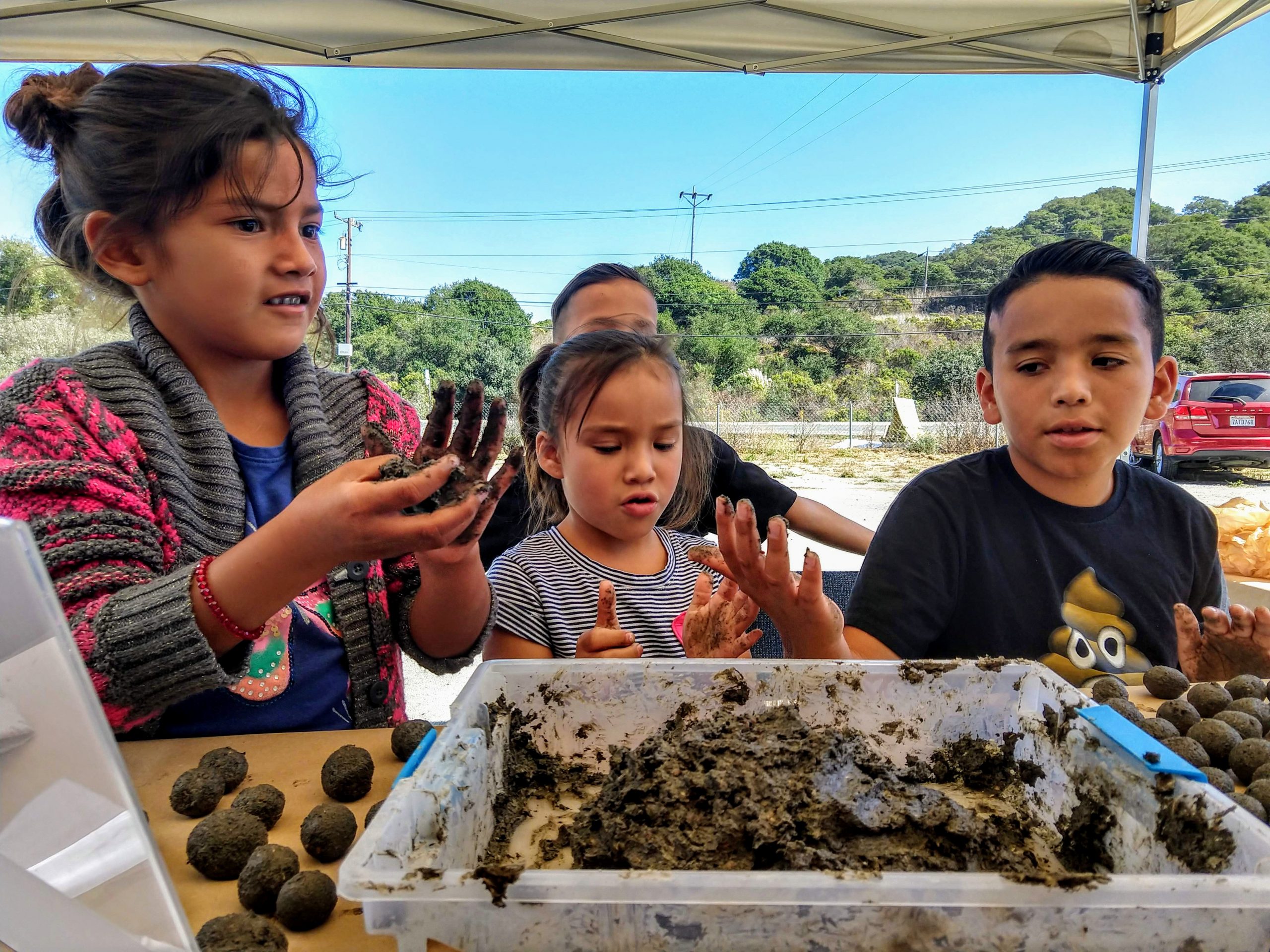
“The word create comes from “to make grow,” as in the act of cultivating plants.”
Art and Agriculture
Terra Cultura believes that we can enjoy meaningful and satisfying work, a healthy and supportive community, and a life well-balanced between work, play, creative, and social pursuits, and that these need not come at the cost of the environment or financial feasibility. We believe that there are guiding principles that bridge agriculture, creativity, community, and culture that can be applied to navigate each without relegating any, creating integrated systems that are indefinitely self-perpetuating and nondestructive. These values include accessible quality education, Mutual Aid, fostering symbiotic relationships culturally, ecologically, and economically, emphasizing collaboration, creating a supportive environment for creative risk-taking, and integrating diversity on all levels.
At Terra Cultura we see creative pursuits as necessary to the local knowledge and organization required for successful agroecology. Art and agriculture are both integrative, place-based practices. Both disciplines require that practitioners hone their perceptions to their physical surroundings–the place and its inhabitants. In his writing on art and agriculture Adam Wolpert writes that a holistic farming method “integrates qualities along with quantities, values sensitive observation, participation and collaboration, and sees the scientist as a part of, not apart from, nature.” These same qualities and calculations can be applied to an artist at work, as the artist evaluates which tools, materials, forms, strategies, hues, compositions, constraints, and nuances will best portray the content of the work. Farming and art are both sensuous practices, demanding keen and elevated perceptions, intimate connection with materials, and physical participation in processes.
The artist, scientist and farmer each benefit through cultivating a diverse, interdisciplinary knowledge base and skillset, just as a community is enhanced by input from diverse perspectives, and an agroecology farm thrives from biodiversity. An artist and agriculturalist are both collaborators with their environments, creating within the limits of time and space. Both require support, knowledge, and participation from their communities. In this willingness to adapt and respond to ever changing needs of one’s natural and social dwelling place, the artist and agriculturalist embrace an attentive acceptance of the chaos of nature, embracing the unknown and adaptability above the need to control and explain.
Through working synergistically with the processes of nature, rather than asserting our exploitive will, we begin to see ourselves as part of the reciprocal exchanges of art, agriculture, and community. By restoring the balance between natural, social, creative, and financial capital through nurture and cooperation, we can sustain ourselves healthfully and indefinitely. It is only by cultivating thriving diversity in our communities and in our fields that we will replenish our soil, bodies, and communities.
Synergistic Relationships
Terra Cultura seeks to break down the barriers that have stratified aspects of our lives: work and creativity, community and commerce, people, the land, and its inhabitants.
Thinking of these things as independent rather than intricately woven has led us to the brink of disaster. In an often alienating, materialistic, and individualistic society, Terra Cultura grounds community to a sustainable place and necessary and valued collaborative projects. The many projects, programs, events, and opportunities at Terra Cultura provide a checks-and-balances system similar to the principle we employ for agriculture. Should one of our programs temporarily flounder, the others will buoy it economically and culturally. This built in safety net creates a haven for risk-taking in the arts and sciences.
Terra Cultura’s relationships of reciprocal exchange extend to its neighboring communities, where collaborative opportunities in arts, education, science, music, community, markets, events, etc. flow in a feedback loop that intends to continuously strengthen community, commerce, and culture for the region. In this way, Terra Cultura breaks down the barrier between the urban and rural, drawing aspects of the city to a rural setting, to the mutual aid of each. Terra Cultura is not only a farm, and educational, cultural, and community center. It is a model for a more fulfilling way of living and working together in a manner that is resilient, holistic, viable, and satisfying. It is a model we hope will expand and change as we learn and teach, and one that will proliferate widely into whatever iterations specific climates and cultures require for more resilient and holistic ways of life.
